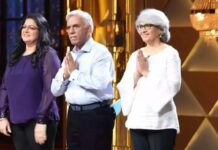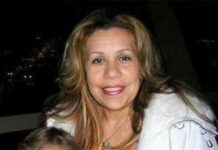Cesar Chávez Biography: Cesar Chávez, who was born on March 31, 1927, witnessed firsthand the deplorable working conditions of agricultural labourers and resolved to change the status quo, which he accomplished. Chávez devoted the majority of his life to achieving better pay, benefits, and overall recognition of the legitimacy of agricultural work, as well as founding organisations and committees that ensured the rights of agricultural workers were not violated, such as the United Farm Workers of America, which is still active. As one of the most influential activists of the 20th century in the United States, his work is still commemorated and honored, and his legacy endures. We will assist you celebrate his birthday here.
Cesar Chávez Birthday
Chávez was always aware that assisting a group of people in attaining rights and improved living conditions is no simple task. His commitment to doing the right thing, despite knowing he would encounter obstacles at every turn, demonstrated what we are capable of if we set our minds to it. Chávez was born Cesario Estrada Chávez on March 31, 1927, in Yuma, Arizona. His astrological sign was Aries, and he was of Mexican descent. He was the offspring of immigrants Librado and Juana Estrada Chávez, who named him after his paternal grandfather. When he was 10 years old, his paternal grandmother passed away, and the local government sold her farmland against his father’s wishes, forcing his family to migrate to California and work as farm laborers, as many did during the Great Depression. This incident was the first time that adolescent Chávez became outraged by the injustices in the world. After numerous school transfers due to his parents’ employment, he dropped out of school at age 15 in order to support his family. After serving in the United States Navy from 1944 to 1946 and receiving an honourable discharge, he returned to farming.
In 1947, Chávez first engaged in activism by joining the National Farm Labor Union, with whom he would occupy a cotton field and participate in a strike against a grape field. In 1952, Chávez assisted fellow activist Fred Ross in establishing a chapter of the Community Service Organization (C.S.O.) in San Jose, California, and was elected vice president of the organisation shortly thereafter. When he lost his employment, he joined the C.S.O. and travelled throughout California to establish additional chapters. In addition, he worked to expand employment opportunities for Mexican-Americans and increase voter registration. In 1959, Chávez became the national director of the C.S.O., leading initiatives such as extending the state pension to permanent residents without citizenship and overseeing the organisation’s financial situation. He resigned in 1962. He went on to found the National Farm Workers Association (NFWA) with the help of Dolores Huerta, a fellow activist who would become his enduring ally. He was elected general director of the Association and established a credit union and an insurance policy for its members. In 1965, the N.F.W.A. organised its first strike, which resulted in improved working conditions for rose grafters who had approached them.
In the same year, the N.F.W.A. and the Agricultural Workers Organizing Committee participated in a strike against California’s grape producers, which later grew into a boycott. By spearheading a visible campaign of nonviolent resistance, Chávez attracted support for the boycott. The strike was effectively resolved in 1970. That same year, Chávez led additional strikes and boycotts, this time to aid lettuce cutters. Chávez was imprisoned because one of the lettuce-growing companies was able to legally prohibit boycotts against them. His supporters protested, and he was subsequently released. Throughout the decade, Chávez led efforts to secure labour contracts for farmworkers, always using demonstrations and boycotts to do so. The United Farm Workers won a significant victory in 1975 when California passed the Agricultural Labor Relations Act, allowing farm workers to unionise and negotiate for improved wages and working conditions. In the 1980s, he also focused on the risks pesticides posed to farmworkers and their families. Chávez worked tirelessly to improve the conditions of agricultural labourers until his death in 1993.
Ewan Gordon Biography: Age, Height, Birthday, Family, Net Worth
Kids Diana Show Biography: Age, Height, Birthday, Family, Net Worth
Cesar Chávez Net Worth, Height
| Name | Cesario Estrada Chávez |
| Nickname | César |
| Birth date | March 31, 1927 |
| Death date | April 23, 1993 (age 66) |
| Zodiac Sign | Aries |
| Height | 5′ 6″ |
Cesar Chávez Biography: 5 SURPRISING FACTS
In 1972, Chávez and Dolores Huerta devised the phrase “S, se Puede” (“Yes, we can do it”), which was used by President Obama in his 2008 campaign.
He ceased eating meat when he realised that animals also experience fear, cold, hunger, and distress.
President John F. Kennedy appeared to have offered Chávez the position of Latin American Peace Corps director, but the activist declined.
As a result of his parents’ job-related relocations, young Chávez attended a total of 38 institutions.
In 2014, “César Chávez,” a film about his life, was released.




